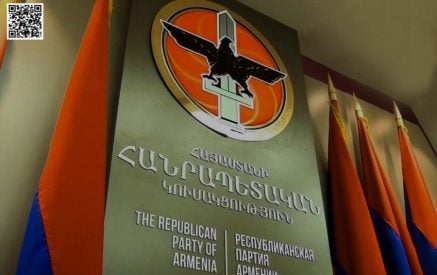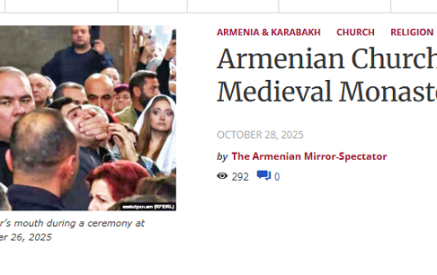On the evening of May 6, the Republican Party of Armenia (RPA) will say that the election ոաս held under unprecedentedly transparent and democratic conditions and the Armenian National Congress (ANC) will say that this was the most disgraceful election in the history of Third Republic and unless the people unite and rise up, Armenia will disappear from the world map. Those two extreme assessments don’t have anything to do with the reality, we are as far from democracy as we are far from disappearing from the world map. I don’t want to talk about this threat at all – I cannot imagine what political dividends can be gotten from terrifying of perdition a people that is already terrified “historically” and “genetically.”
There are no grounds for optimistic “democratic pictures” either – the election bribe has already been handed out, the whole administrative leverage has been used, the expanded lists are “fixed,” ignorant oligarchs have already ensured their seats. Under these conditions it is hard to expect that any political force, besides the RPA and the Prosperous Armenia Party (PAP), will get a parliamentary group bigger than a 10-15-member group.
Given all this, new elements of political culture have emerged during these few weeks. The opposition was not satisfied by obsolete threats of gibbets and tribunals, curses and offenses, but also tried to offer political and economic alternatives. It refers to a large extent, certainly, to the Armenian Revolutionary Federation (ARF) and the Heritage Party. The government didn’t switch on the repressive apparatus, as it had done before, when the police, in particular, would terrify the opposition supporters. The government didn’t respond to offensive assessments of it, as a rule. Normal conditions were created on TV channels for the opposition to express itself. Three political forces, having different approaches, agreed to jointly supervise the legitimacy of the election.
All that raises a little hope that our political system, although very slowly, has started to move from the dead point. That although there will be rallies, appeals and the above-mentioned “eschatological” threats, but there will not be clashes. That the political forces that will appear in the parliament, regardless of what coalitions they will form, will form a government that will be able to ease the current social tension. Anyway, optimism in our case should be too careful.
Read also
ARAM ABRAHAMYAN






















































